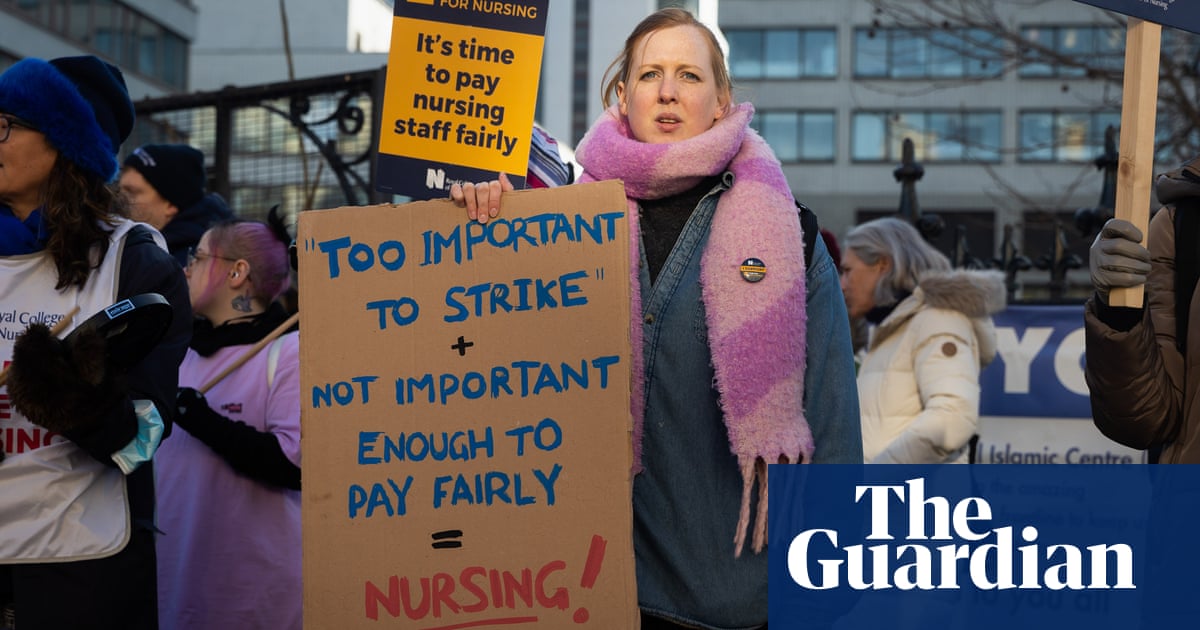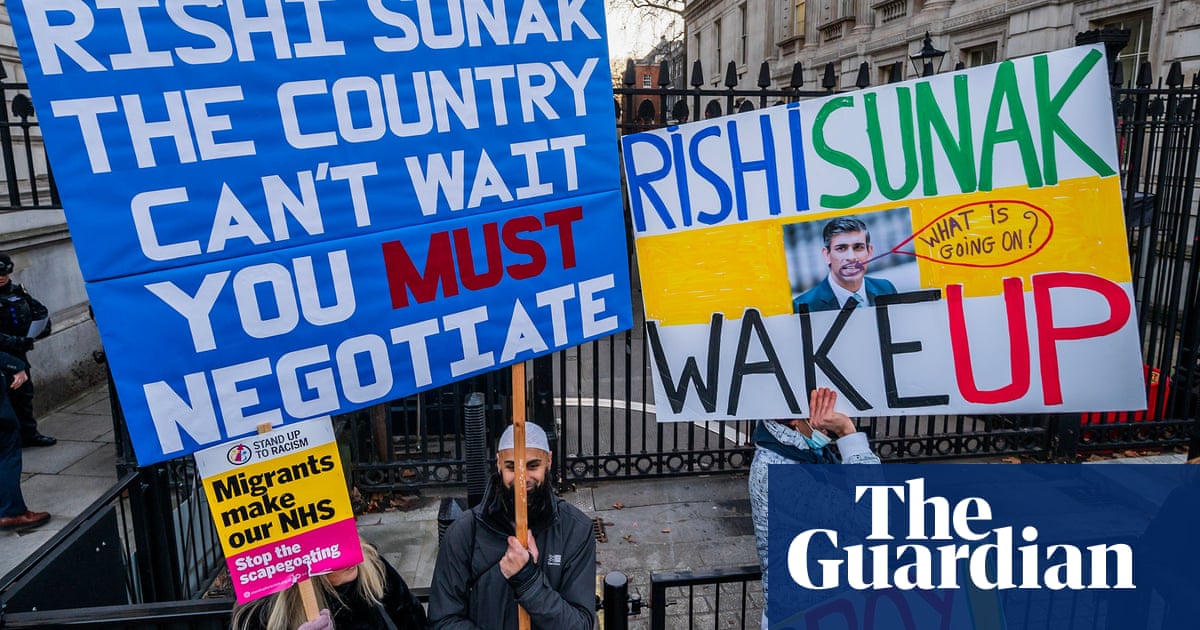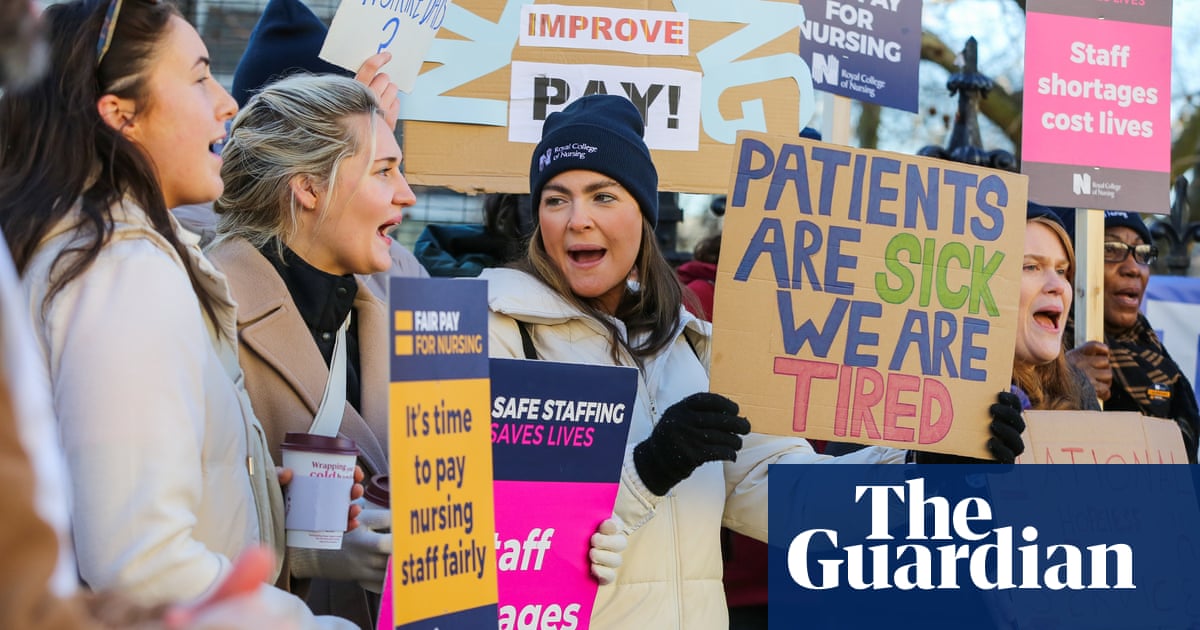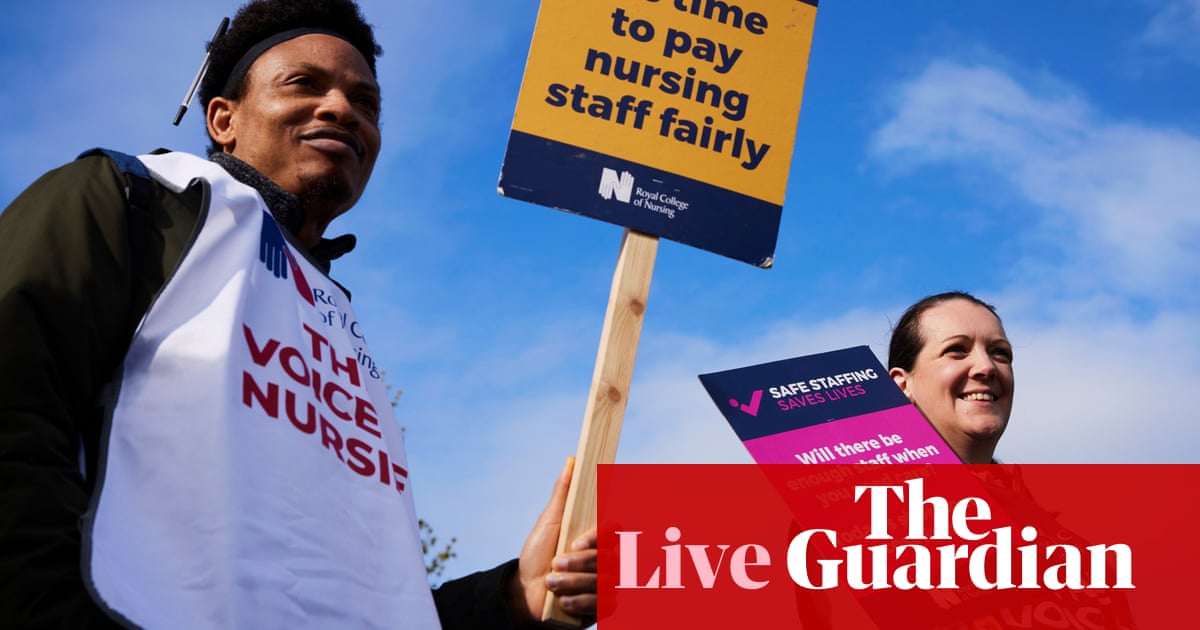
Cancer care will be disrupted, leaving patients unable to receive some treatments, when the first of a planned series of nurses’ strikes starts next month.
The Royal College of Nursing (RCN) is close to finalising which areas of cancer services will be affected and which will be protected when nurses take strike action on 15 and 20 December, the first in the union’s 106-year history.
Cancer care involves many types of procedures, including diagnostic tests such as scans and X-rays, sessions of chemotherapy or radiotherapy, and emergency surgery to remove tumours.
RCN members have voted to strike in most hospitals and other providers of NHS care in England, Wales and Northern Ireland on those days in what union sources say is a show of strength to ministers over their claim for a pay rise of 5% above inflation.
Senior sources said the strike action was expected to last for 12 hours on both days – most likely running between 8am and 8pm.
The unprecedented work stoppage will seriously disrupt care and is likely to be the first in a series of strikes over the winter and into the spring by NHS staff, including junior doctors and ambulance workers.
Pat Cullen, the RCN general secretary, said on BBC Radio 4’s Today programme on Friday that “services such as oncology will be derogated or exempt from any strike action” but added that it was too soon to specify whether services such as scans and other checks would stop or proceed.
Asked about colonoscopies, a diagnostic test used to detect bowel cancer, Cullen said: “All of the detail is being worked through.”
But in an apparent admission that some cancer care would be suspended on strike days, she added: “Those services that are not considered life-preserving or emergency services will not be derogated. Those that do fall into those particular descriptions will be derogated.”
The RCN has almost finished drawing up a detailed list of which services across the full range of NHS medical care will be affected and which will not. It is due to finalise that list early next week before meetings at which it will brief NHS bodies in each of the three countries.
The RCN said it had confirmed the dates after the UK government turned down its offer of formal, detailed negotiations as an alternative to strike action.
“Ministers have had more than two weeks since we confirmed that our members felt such injustice that they would strike for the first time,” said Cullen. “My offer of formal negotiations was declined and instead ministers have chosen strike action.
“They have the power and the means to stop this by opening serious talks that address our dispute. Nursing staff have had enough of being taken for granted, enough of low pay and unsafe staffing levels, enough of not being able to give our patients the care they deserve.”
The strikes are taking place after a series of individual ballots were held at NHS trusts and boards, rather than one national ballot.
At more than 40% of England’s hospitals, mental health and community services, nurses will not be entitled to strike because the turnout was too low in those ballots. Action can happen, however, at all of Northern Ireland’s health boards and all but one in Wales.
Cullen said the UK government had chosen strikes over listening to nursing staff, adding: “If you turn your back on nurses, you turn your back on patients.”
She said she did not recognise figures put forward by the health secretary suggesting the pay demands from the RCN amounted to a 19.2% pay rise costing £10bn a year.
“If [the health secretary Steve] Barclay wishes to meet with me, get round the table and stop the spin and start to speak, he can avert these strikes,” she said. “But my door is wide open night and day. I will make myself available, as will my team on behalf of our nursing staff.”
The RCN said that despite a pay rise of about £1,400 awarded in the summer, experienced nurses were worse off by 20% in real terms owing to successive below-inflation awards since 2010. It said the economic argument for paying nursing staff fairly was clear when billions of pounds were being spent on agency staff to plug workforce gaps.
It said that in the last year, 25,000 nursing staff around the UK had left the Nursing and Midwifery Council register, with poor pay contributing to staff shortages across the country, which it said were affecting patient safety. There are 47,000 unfilled NHS registered nurse posts in England alone.
Wes Streeting, the shadow health secretary, said: “Why on earth is the health secretary refusing to negotiate with nurses? Patients already can’t get treated on time. Strike action is the last thing they need, yet the government is letting this happen. Patients will never forgive the Conservatives for this negligence.”
Barclay said he was “hugely grateful” for the hard work of nurses and he deeply regretted the strike action. However, he refused to open formal talks and described the RCN’s demands as “not affordable”.
“Our priority is keeping patients safe,” he said. “The NHS has tried and tested plans in place to minimise disruption and ensure emergency services continue to operate.”












